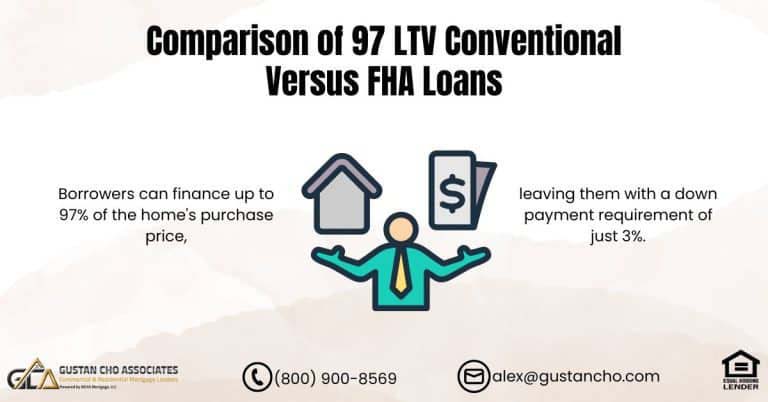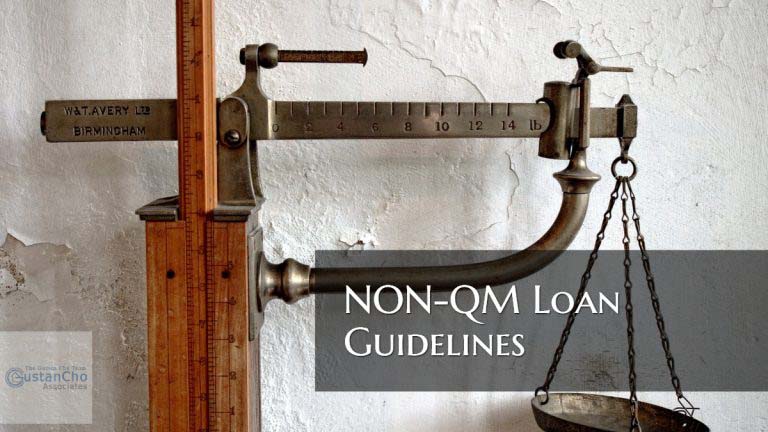Preparing to Qualify for Conventional Loans: Your Step-by-Step Guide to Homeownership
Are you ready to buy a home but unsure how to qualify for a conventional loan? Many borrowers want to avoid FHA loans due to mortgage insurance requirements, student loan guidelines, or past financial history. Understanding how to prepare for a conventional loan can make the process smoother and increase your chances of approval.
In this guide, we’ll walk you through everything you need to know about preparing to qualify for conventional loans, including credit score requirements, down payments, income verification, debt-to-income ratios (DTI), and special situations like student loans and past bankruptcies.
What is a Conventional Loan?
To qualify for a conventional loan, a mortgage not guaranteed by the government, you need to understand a few key points. These loans come from private lenders and are typically for individuals with good credit, stable jobs, and low debt. Fannie Mae and Freddie Mac are the companies that set the rules for most regular loans offered by private banks.
A major advantage of conventional loans is that if you put down at least 20% of the home’s price, you won’t have to pay extra mortgage insurance, saving you money each month. Having a solid financial plan and working on your credit is essential when preparing to qualify for these loans.
Looking for a Low-Rate Mortgage?
Apply Now And Get Pre-Approved for a Conventional Loan Today
Key Benefits of Conventional Loans:
- No upfront mortgage insurance is required with a 20% down
- More flexibility with property types
- Potentially lower monthly payments compared to FHA loans
- No funding fees like VA or USDA loans
Step 1: Check Your Credit Score
Your credit score plays a very important role when preparing to qualify for conventional loans. You usually need a credit score of at least 620 to get approved. However, if you want the best rates, aim for a score of 700 or higher. A good credit score can help you get a better deal on your loan.
Improving Your Credit Score Before Applying:
- Pay bills on time – Late payments can drop your score fast.
- Lower credit card balances – Keep your credit utilization below 30%.
- Avoid opening new accounts – Hard inquiries can lower your score.
- Review your credit report for mistakes – Challenge any inaccuracies.
Looking for assistance? Gustan Cho Associates focuses on helping borrowers facing credit difficulties qualify for conventional loans.
Step 2: Manage Your Debt-to-Income (DTI) Ratio
When preparing to qualify for conventional loans, knowing your DTI ratio is important. DTI refers to the Debt-to-Income ratio. This figure indicates what portion of your monthly earnings is allocated to debt repayment. Lenders evaluate this ratio to determine how much money they will lend you.
For most conventional loans, there are some DTI rules you should keep in mind:
- The maximum DTI is 45%. In some cases, it can be as high as 50%.
- To have the best chance of getting approved, keep your DTI under 43%.
If your monthly income is $5,000 and you have $2,000 in monthly debt payments, your debt-to-income (DTI) ratio can be calculated in this way:
DTI = (Monthly Debt Payments / Monthly Income) x 100
So, DTI = ($2,000 / $5,000) x 100 = 40%.
A DTI of 40% is generally acceptable for most lenders. By keeping your DTI low, you’ll show lenders that you can handle your debts, and they may be more willing to lend you money.
How to Lower Your DTI Before Applying:
- Reduce credit card debts and personal loan amounts.
- Refinance high-interest debt into lower payments.
- Refrain from accumulating additional debt before seeking a mortgage.
- Consider increasing your income (overtime, side jobs, etc.).
Step 3: Save for a Down Payment
When preparing to qualify for conventional loans, knowing the different down payment options you can choose from is important. If you’re a first-time homebuyer, you could get a loan with just 3% down through something called a Conventional 97 loan. This is a great way to start because it allows you to buy a home with a smaller payment upfront.
For most conventional loans, the standard minimum down payment is 5%. However, if you can put down between 10% and 20%, you might not have to pay for private mortgage insurance (PMI), which can save you money each month. Knowing these options can help you make a better home choice.💡
Pro Tip: Some down payment assistance programs can help cover your upfront costs. Ask us how!
Step 4: Verify Your Income and Employment
When preparing to qualify for conventional loans, showing that you have a steady income and a good job history is important. Lenders want to see that you have worked the same job for at least two years. This helps them feel confident that you can pay back the loan.
Documents You’ll Need for Income Verification:
- W-2s from the past two years
- Recent pay stubs (last 30 days)
- Tax returns (if self-employed or commission-based)
- Bank statements to show consistent income deposits
Self-employed? Gustan Cho Associates offers alternative loan programs, including bank statement loans, P&L-only loans, and no-doc mortgage options!
Step 5: Handle Student Loans Wisely
When preparing to qualify for conventional loans, you must think carefully about your student loans. Many people struggle with student loan debt, making it hard to buy a home. Good news! Both Fannie Mae and Freddie Mac can help. They allow you to use income-based repayment (IBR) plans to determine your debt-to-income (DTI) ratio.
Student Loan Guidelines for Conventional Loans:
- If on the IBR Plan (Income-Based Repayment), lenders use your actual payment (even if it is $0).
- If not on an IBR plan, lenders use 0.50% of the loan balance as a hypothetical payment.
- Deferred student loans are not excluded from DTI calculations (unlike VA loans).
If your student loans are impacting your DTI, we can help you strategize your loan application to improve your chances of approval!
FHA vs. Conventional – Which Mortgage Is Best for You?
Apply Now And See If You Qualify for a Conventional Loan
Conventional Loan Waiting Periods:
Chapter 7 bankruptcy: Four years starting from the discharge date.
Chapter 13 Bankruptcy: 2 years after discharge, 4 years after dismissal.
Foreclosure, Short Sale, or Deed-in-Lieu: 4 years from completion.
Tip: If you haven’t met the waiting period yet, consider alternative financing options like non-QM loans offered by Gustan Cho Associates!
Step 7: Work with a Lender With No Overlays
When getting ready to qualify for conventional loans, it’s important to know that banks have different rules. Some banks have additional rules, known as lender overlays, that can make it harder to qualify for a loan compared to the basic standards set by Fannie Mae or Freddie Mac. However, some lenders, like Gustan Cho Associates, only follow these basic guidelines, making it easier to qualify for the loan you need.
Why Choose Us?
- No overlays on credit scores, DTI, or loan amounts
- Expert help for borrowers with past credit issues
- Licensed in 48 states for fast approvals
If you’ve been denied elsewhere, we can help you get approved!
Final Thoughts: Get Pre-Approved Today!
Now that you understand how to prepare for a conventional loan, the next step is to get pre-approved. Knowing your eligibility upfront will help you shop for homes confidently and speed up the closing process.
If you have any questions about preparing to qualify for conventional loans or borrowers who need to qualify for loans with a lender with no overlays, please contact us at 800-900-8569. Text us for a faster response. Or email us at alex@gustancho.com. The team at Gustan Cho Associates is available 7 days a week, on evenings, weekends, and holidays.
Not Sure If You Qualify? Get Personalized Mortgage Help for Conventional Loans
Talk to a Loan Expert & Find the Best Conventional Loan for You
Frequently Asked Questions About Preparing to Qualify for Conventional Loans:
Q: What Credit Score do I Need When Preparing to Qualify for Conventional Loans?
A: Most lenders require at least 620 but aim for 700 or higher for better rates.
Q: How Much Money do I Need for a Down Payment on a Conventional Loan?
A: You can put up as little as 3% if you’re a first-time homebuyer. A 20% down payment helps you avoid private mortgage insurance (PMI).
Q: What is the Maximum Debt-to-Income (DTI) Ratio for a Conventional Loan?
A: Most lenders allow a DTI of up to 45%, but some may go up to 50% with strong credit.
Q: Am I Eligible for a Conventional Loan if I have Student Loans?
A: Yes! If you’re on an income-based repayment (IBR) plan, lenders will use your actual payment amount in DTI calculations.
A: How Long do I Need a Job Before Applying for a Conventional Loan?
A: Most lenders want at least two years of steady employment in the same field.
Q: Do I Need to Pay Mortgage Insurance on a Conventional Loan?
A: If you put down less than 20%, you’ll need private mortgage insurance (PMI), which can be removed once you reach 20% equity.
Q: What are the Waiting Periods After Bankruptcy or Foreclosure for a Conventional Loan?
A: The waiting periods are as follows:
- Chapter 7 Bankruptcy – 4 years after discharge
- Chapter 13 Bankruptcy – 2 years after discharge, 4 years after dismissal
- Foreclosure, Short Sale, or Deed-in-Lieu – 4 years after completion
Q: Can I Use a Co-Borrower to Help me Qualify for a Conventional Loan?
A: Indeed! Fannie Mae and Freddie Mac permit non-occupant co-borrowers, provided they satisfy income and credit criteria.
Q: What’s the Best Way to Lower My DTI when Preparing to Qualify for Conventional Loans?
A: Pay off credit cards and personal loans, avoid new debt, and consider getting a side job to increase income.
Q: How Can I Get Help with Preparing to Qualify for Conventional Loans?
A: For professional assistance on qualifying without any lender overlays, contact Gustan Cho Associates at 800-900-8569 or email alex@gustancho.com.
This blog about “Preparing To Qualify For Conventional Loans” was updated on July 8th, 2025.
Refinance with a Low-Rate Conventional Loan & Lower Your Monthly Payment
Apply Now And Get recommendations From Loan Experts










